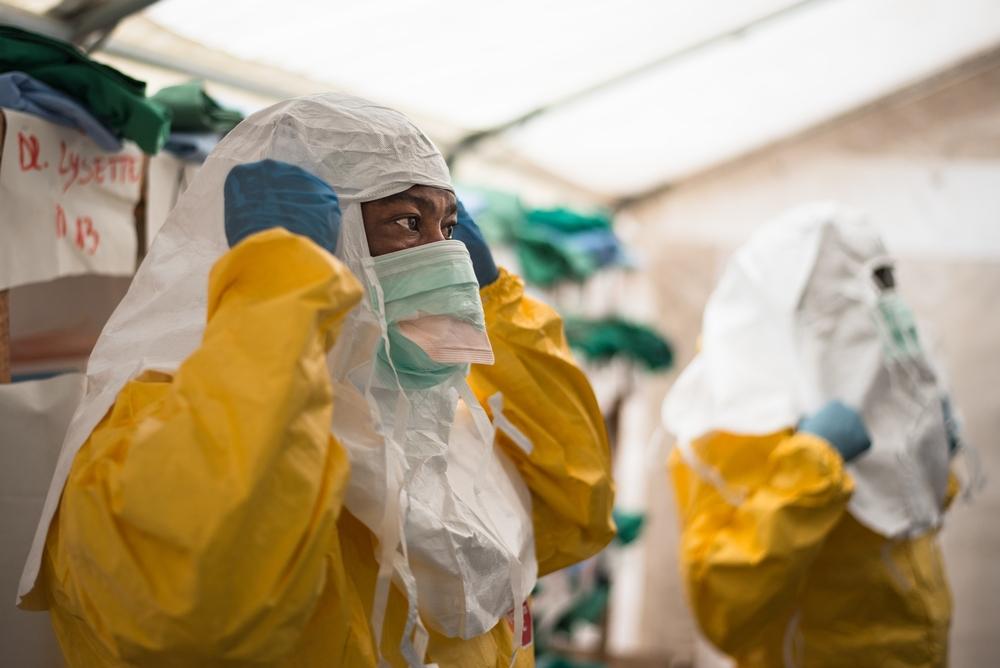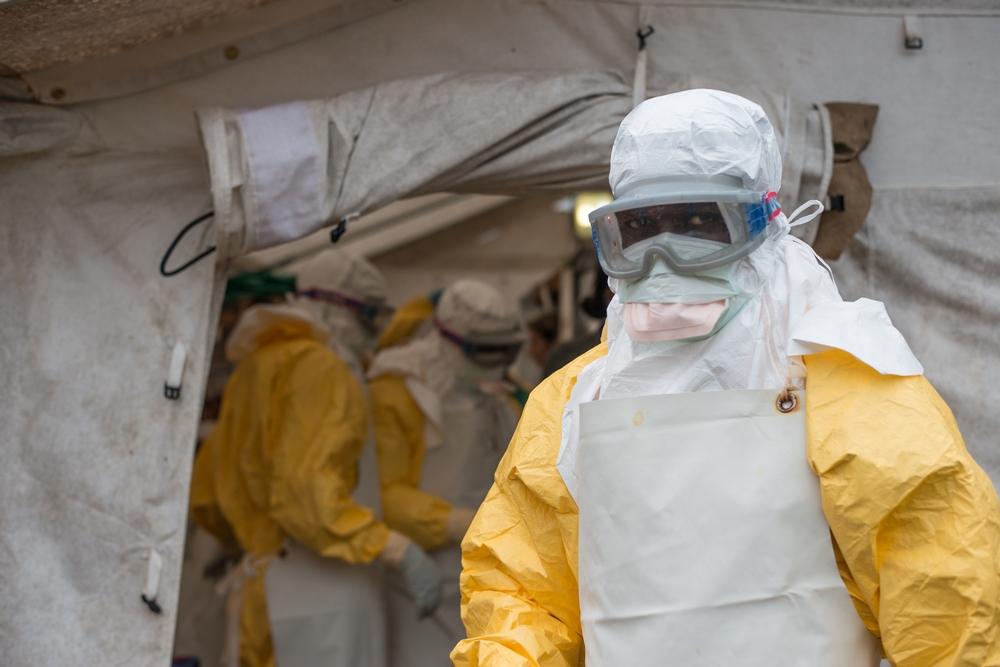Congo: Ebola outbreak spreads to major city
MSF emergency teams are on the ground responding to the current outbreak of Ebola in the north of the Democratic Republic of Congo (DRC).
One new case has been confirmed from the city of Mbandaka, which has a population of more than a million and is a busy port city on the Congo River in Equateur province.
This new case is linked with the epicentre of the epidemic, the east of Lake Tumba, and it is in addition to the 43 people who have so far presented with symptoms of haemorrhagic fever.
Ebola is a serious infectious illness that causes internal bleeding and often proves fatal.
It can spread rapidly through contact with small amounts of bodily fluid and its early flu-like symptoms are not always obvious.
“Serious and worrying scenario”
“This is the ninth Ebola outbreak in Congo in the last 40 years,” says Henry Gray, MSF Emergency Coordinator in Mbandaka.
“So far, all of them have occurred in remote and isolated areas, as was the case last year in Likati, when the epidemic didn’t spread. With the new case confirmed in Mbandaka, the scenario has changed, and it has become most serious and worrying since the disease is now affecting an urban area.
"It is paramount to trace the suspect case in order to have a clearer view of how it reached the city. We are working closely with the Ministry of Health and the other organisations to implement a coordinated, tailored and rapid response to stop the spread of Ebola.”
Ebola management centres
So far, three people have been confirmed as having Ebola, along with 20 probable cases and 21 suspected cases. Twenty-three people have so far died.
The 514 people who may have been in contact with the infected people have been notified by the national health authorities, and are currently under monitoring.
To tackle the epidemic and limit as much as possible the risk of it spreading, we are stepping up our response in the affected areas of Mbandaka and Bikoro.
MSF emergency teams are already on-site and have set up an isolation zone in Mbandaka’s main hospital (five beds) and one in Bikoro hospital (10 beds).
Teams are also setting up two Ebola Management Centres (EMCs) in Mbandaka and Bikoro, with 20 beds each.
In the next few days, several tonnes of supplies (medical kits; protection and disinfection kits containing isolation items, such as protective clothing, gloves and boots; logistic and hygiene kits containing items such as plastic sheets, chlorine spray kits, water treatments kits, etc; palliative drugs) will arrive in Mbandaka.
Among the MSF staff on the ground are some of the organisation’s most experienced Ebola field workers, including medical personnel, experts in infection control and logisticians.
90%
UP TO 90% MORTALITY RATE FROM EBOLA
11,300
PEOPLE KILLED IN THE 2014-16 EBOLA OUTBREAK
14
OUTBREAKS OF EBOLA IN DRC IN THE PAST 40 YEARS
Ebola vaccine
MSF and its research arm (Epicentre) are working closely with the Ministry of Health and the World Health Organization (WHO) to implement the Ebola rVSVDG-ZEBOV-GP vaccine as an additional measure to control the outbreak.
While the strategy is being put in place, the “pillars” of an Ebola intervention must continue in order to stem the spread of the disease These include:
- early treatment and isolation of people who are sick,
- tracing and following up of contacts,
- informing people about the disease,
- information about how to prevent it and where to seek care,
- supporting existing healthcare, and
- temporarily changing cultural behaviour around funerals
MSF in the Democratic Republic of Congo
The second largest country in Africa by area, the Democratic Republic of Congo (DRC) is rich in resources but plagued by conflict.
It has endured decades of multiple overlapping crises and severe limitations in medical capacity. Médecins Sans Frontières/Doctors Without Borders (MSF) run some of its largest programmes in DRC, working in 21 of the country’s 26 provinces.
We provide services ranging from basic healthcare and nutrition to treatment for victims of sexual violence and people living with HIV/AIDS. In 2019, we responded the country's largest outbreaks of measles and Ebola to date.

